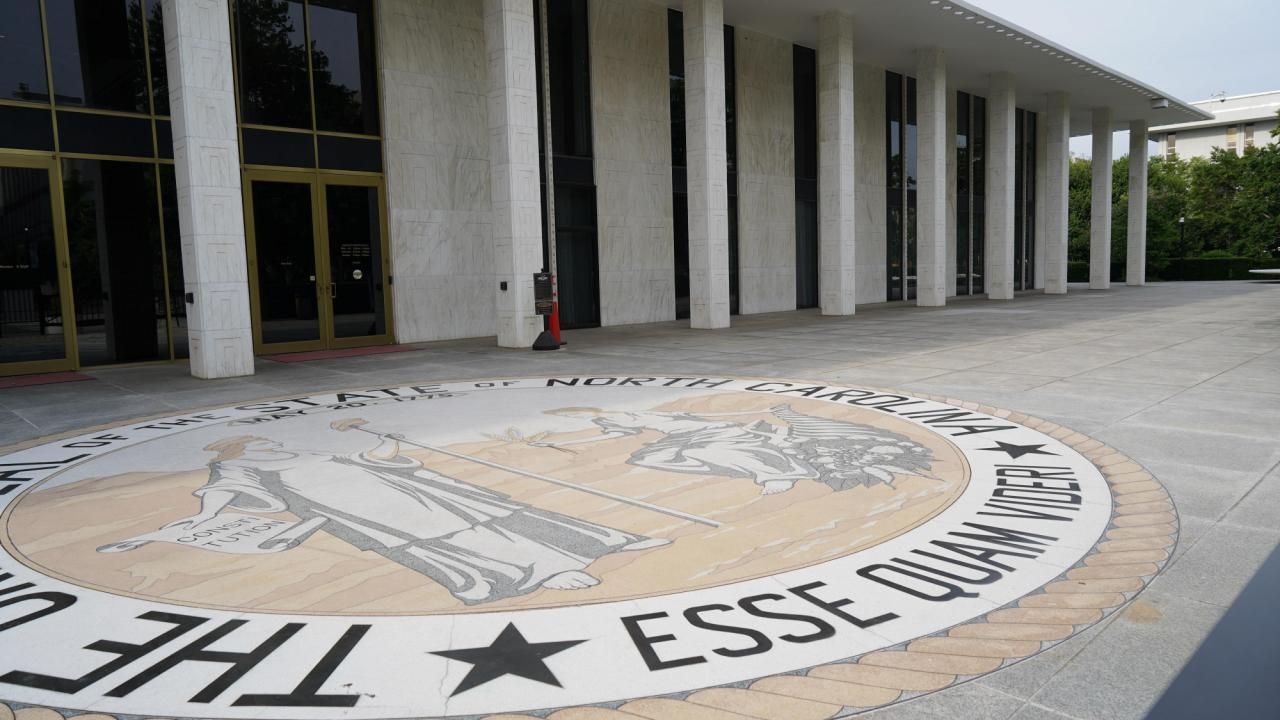Transparency bill advances at state legislature, in process lacking transparency

A bill to increase transparency in state and local government passed its first legislative committee Tuesday.
In an ironic twist, one version of the bill was posted online, but lawmakers voted to approve a different version. Some said they had only been shown it minutes prior. And the bill's lead sponsor acknowledged that even the version the committee voted to approve was soon to be outdated. As he was describing the bill to the committee he told lawmakers to ignore one section, assuring them it would get deleted in the future.
Despite the flurry of confusion, this was only the first step in the process. The bill, HB 205, must pass several more committees before it can potentially come up for a full vote.
It appears a key focus of the bill is to cement Republican leaders' power at the Council of State, the group of 10 statewide elected officials that includes the governor, attorney general, agriculture secretary, treasurer and others. Although it's led by Democratic Gov. Roy Cooper, the council as a whole has a 6-4 Republican majority.
The bill appears to change the rules to stop the governor from being able to unilaterally make some decisions, and would instead require the whole Council of State to vote first. Although lawmakers asked Tuesday for examples of how the proposal might work if it becomes law, answers were few and far between.
The bill's GOP sponsors and legislative staff were unable to answer all the questions that several Democratic lawmakers raised about the bill, particularly related to those changes to the Council of State rules. They eventually referred questions to Sam Watts, the legislative liaison for Republican State Treasurer Dale Folwell, whose office wrote the bill.
Folwell repeatedly questioned the way Cooper scheduled and ran Council of State meetings during the pandemic. Among other things, Folwell said at the time that Cooper failed to keep other statewide elected officials informed.
Some of the Democrats at Tuesday's meeting were concerned the language was broadly written and might constitute a further power grab away from Cooper by Republicans — a long-running theme of his time as governor.
Rep. Vernetta Alston, a Durham Democrat, asked for examples of what types of decisions that change might include that weren't already covered by changes made to Cooper's power in the 2021 budget. Another Democrat, Apex Rep. Julie von Haefen, appeared similarly suspicious.
"There's no definition of this item," von Haefen said. "It's very broad."
Watts told them he believes the legislature already acted to change the balance of power on the Council of State in 2021, but just didn't rewrite all the necessary laws to properly reflect that. This bill would just make it more clear that it's always the entire 10-person council, not just the governor, that should be making decisions.
"We don't take any authority from the governor," Watts said. "... We certainly don't want to do that. Those issues were dealt with in the budget revision that the governor signed."
Power struggles between Cooper, GOP
During the COVID-19 pandemic, Cooper declared a state of emergency and then used that power to make decisions that many Republicans disagreed with, like keeping certain types of businesses closed during the first few months of the pandemic.
In some cases, he emailed members of the Council of State about his proposed plans shortly before implementing those plans. The Republican officials objected, saying they wanted more input.
The 2021 state budget sought to end that practice, with a new law saying the governor can now only declare emergencies if the majority of the Council of State approves. Cooper signed the budget into law but criticized parts of it, including that.
This new bill says that whenever state law instructs the governor to ask the Council of State for advice, he can no longer do it informally like over email. There would have to be an official meeting, with a vote from the full council.
Watts said the bill is intended to improve transparency at all levels of state and local government, by tackling everything from open meeting rules to financial transactions involving government agencies.
In addition to the Council of State changes, it also tightens rules for more esoteric parts of government, like when local governments want to take out bonds to finance parks, schools or other projects.
There's also a key provision, Watts said, that would crack down on efforts to use non-disclosure agreements to conceal details of government work that should be a public record. If state or local government officials do sign an NDA agreement, the law says, then that contract itself becomes a public record.
"What we're trying to do is ensure that all financial transactions — whether they're approving bonds, selling property, buying property — have the highest level of transparency and scrutiny," Watts said.













